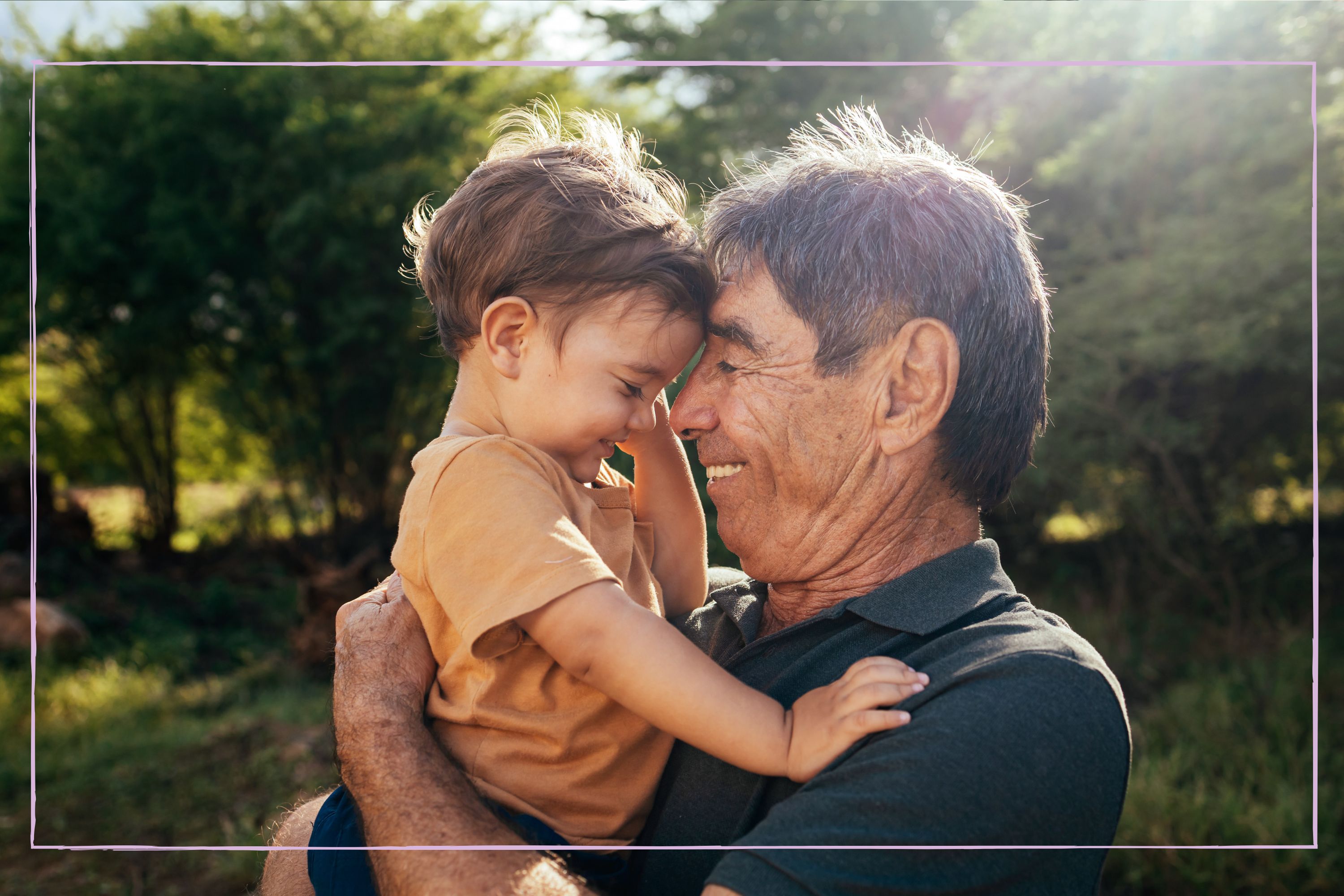Do grandparents really love their grandkids more than their own children? Here's what the science has to say...
It can sure feel like it sometimes...

Parenting advice, hot topics, best buys and family finance tips delivered straight to your inbox.
You are now subscribed
Your newsletter sign-up was successful
Research has shown that grandparents often feel more affection toward their grandkids than their own children, but one grandmother has put the science into perspective to soften the blow - sort of.
When you become a parent for the first time, holding your newborn in your arms and watching them do, well, anything at all, it feels magical. You could never have imagined the amount of love you could feel for another person in that moment. And then you introduce the bundle of joy to your parents, the new grandparents, and feel, to be honest, a bit left out.
It's something a lot of parents experience, no matter how old or at what stage of development their child is in. Don't get it wrong, it's wonderful to see your child bond with their grandparents, even if the visits have become few and far between as parents increasingly say they're too busy to look after their grandkids. But when you arrive at the door and are practically ignored in favour of you child by your own parents, it can sting just a bit.
And you're not imagining it. One study that measured the brain function of 50 grandmothers as they looked at photos of their grandchildren, then at photos of their adult children, found that grandmas feel more affection toward their grandkids than their own children.
James Rilling, who led the study, explained the results, saying, “What really jumps out in the data is the activation in areas of the brain associated with emotional empathy. That suggests that grandmothers are geared toward feeling what their grandchildren are feeling when they interact with them. If their grandchild is smiling, they’re feeling the child’s joy. And if their grandchild is crying, they’re feeling the child’s pain and distress.”
On the the other hand, when grandmothers viewed images of their own child, the area of the brain associated with cognitive empathy lit up, meaning they were intellectually trying to understand what their adult child was thinking or feeling and why, but having no emotional response.
But there's one simple reason the researchers believe this to be true. “Young children have likely evolved traits to be able to manipulate not just the maternal brain, but the grand maternal brain,” Rilling says. “An adult child doesn’t have the same cute ‘factor,’ so they may not illicit the same emotional response.”
Parenting advice, hot topics, best buys and family finance tips delivered straight to your inbox.
It might a harsh blow, especially when you consider grandparents have previously revealed they learn more from their grandkids than their own children, but one grandmother took to the internet to try and explain the feeling, to try and soften the blow.
“I’m a grandmother, and I love my grandchildren as much as I love my children, I couldn’t love them more as it wouldn’t be possible," she said in a post on Mumsnet.
“The relationship with grandchildren is more pleasurable in some ways though, as we grandparents have the fun times and less stress as we aren’t responsible for daily routines, decisions etc. Personally I love being a grandmother, just as much as I enjoyed being a mother.”
For more family news and parenting tips, we've explained gentle parenting and therapeutic parenting too. Meanwhile, one parenting expert has revealed her discipline hack for kids of all ages, and we've looked at the Three Day Nanny's top tips and tricks for disciplining your kids.
Charlie Elizabeth Culverhouse is a news writer for Goodtoknow, specialising in family content. She began her freelance journalism career after graduating from Nottingham Trent University with an MA in Magazine Journalism, receiving an NCTJ diploma, and earning a First Class BA (Hons) in Journalism at the British and Irish Modern Music Institute. She has also worked with BBC Good Food and The Independent.